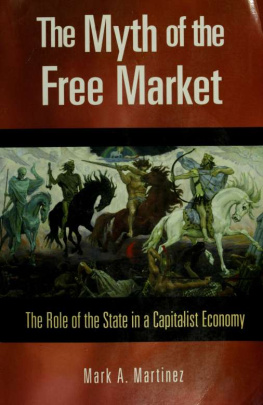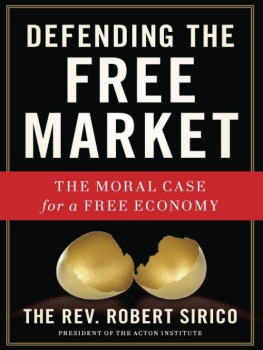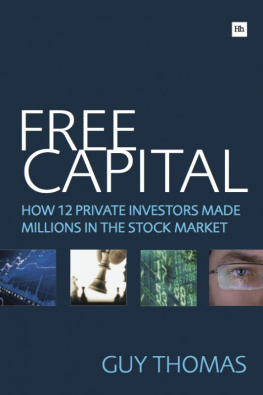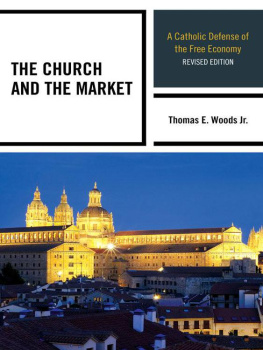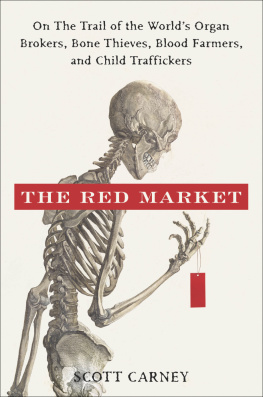Praise (and criticism) for Market Urbanism
Market urbanism may well be the most significant movement in urbanism of the past decade. And no one is more closely associated with it than Scott Beyer, the Market Urbanist.
While I am not a died-in-the-wool market urbanist, I have learned a ton from Beyer, his colleagues and the movement they are part of. Americas urban revitalization of the past two decades has been premised on widely decentralized and highly local approaches to private-public partnership. It is clear as a proverbial bell that markets play a key role in urban economies and urban life. So, liberalizing them and allowing them to function more efficiently is the key to creating more affordable, loveable and functional cities. And this is particularly the case for revamping zoning and building codes to allow for the provision of more affordable housing and using congestion pricing to help overcome congestion and gridlock. If you want to understand the burgeoning market urbanist perspective, read this book.
Richard Florida, author, The Rise of the Creative Class
Market Urbanists claim to believe in free-market outcomes, but when the results of free-market processes differ from what the Market Urbanists think they ought to be, they are as willing as any other central planners to use the power of government to force people to behave the way the urbanists think they should. Polls show that 80 percent of Americans prefer or aspire to live in single-family homes and Americans drive for more than 95 percent of urban travel for the good reason that automobiles can access far more economic opportunities in a given travel time than any other mode of travel. Yet Market Urbanists, like other urban planners, think it is their duty to increase urban densities, forcing more people into multifamily housing, partly with the goal of reducing the amount of driving people do.
Scott Beyer, the author of this book, isnt as bad as some of the Market Urbanists. But he is overly enamored with increasing urban densities and justifies that belief with claims about costs of low-density development that cannot be substantiated. This is not the way most people want to live, especially in the wake of a pandemic during which leading authorities have encouraged people to distance themselves from one another.
Randal OToole, senior fellow, Cato Institute
I am far from a libertarian, but I have found the market urbanism movement a stimulating and important voice in the current debates. Its undoubtedly the case that cities are over-regulated in key areas like housing where allowing the market greater room to flourish would be of great value. Scotts work in particular shows a motivation and concern for the opportunities available to people, and their well-being too often missing from abstract policy debates.
Aaron Renn, contributing editor, City Journal
The concept of market urbanism that underlies Scott Beyers work carries an important insight that becomes all the more crucial the more cities grow in scale, complexity and dynamism, namely that the intricate order of cooperation that makes cities engines of prosperity can only evolve bottom up, on the basis of everybodys free exploration of potential co-location synergies. Hayeks notion of market competition as discovery process, guided by the profit and loss system that empowers productive discoveries and cuts short mistaken ventures, also applies to urban investments.
Patrik Schumacher, principal, Zaha Hadid Architects
Housing markets are, first and foremost, markets. Yet conservatives and liberals often fail to consider basic economic principles when it comes to housing issues. Scott Beyers Market Urbanism Report is a gem the rare site that looks beyond government planning and actually wrestles with tough questions about freedom and economics in the urbanism context.
Steven Greenhut, R Street Institute western director
The days of megalomaniac top-down planning are over and rightly so. New city projects, like Free Private Cities are clearly preferring Market Urbanism over top-down solutions. After all, the market is comprising of the people, and they should have a say in how their city is shaped.
Titus Gebel, author, Free Private Cities
Scott Beyer has focused on how healthy, compact cities are a natural result of free enterprise, and how government policies, particularly zoning, regulatory, and tax policies, have created ghettos and have made cities less affordable and less prosperous than they should be.
Dan Sullivan, vice president, Council of Georgist Organizations
For many years, the conventional wisdom in some quarters was that support for the free market meant support for urban decline and the dominance of car-dependent suburbs. In recent decades, the market urbanist movement has shown otherwise. Market urbanists argue that government regulation in fact causes sprawl, by limiting the amount of housing and businesses that can locate in walkable areas.
Scott Beyer was one of the leading market urbanist commentators; in a variety of media, he has made the case for market urbanism. In this book, he builds on his online work.
Michael Lewyn, author, Government Intervention
and Suburban Sprawl: The Case for Market Urbanism

Market Urbanism
A vision for free-market cities
Copyright 2021 by Scott Beyer
All rights reserved. No part of this book may be reproduced or transmitted in any form or by any means without written permission of the author.
ISBN 979-8-9850040-0-7
Published by:
Market Urbanism Report
Contents
Part 1
Chapter 1
Chapter 2
Chapter 3
Chapter 4
Part 2
Chapter 5
Chapter 6
Chapter 7
Part 3
Chapter 8
Conclusion
Glossary of Terms
ADU: accessory dwelling unit
APA: American Planning Association
AV: autonomous vehicle
BID: business improvement district
BMR: below market rate
BRT: bus rapid transit
CBA: community benefits agreement
CBD: central business district
CNU: Congress for the New Urbanism
DOT: Department of Transportation
DRB: design review board
DRT: demand-responsive transit
DUA: dwelling units per acre
EV: electric vehicle
FAR: floor-area ratio
FBC: form-based code
HOA: homeowners association
HOT: high-occupancy toll
HOV: high-occupancy vehicle
HSR: high-speed rail
HUD: Department of Housing and Urban Development
IZ: inclusionary zoning
LIHTC: low-income housing tax credits
LVT: land value tax
MTA: Metropolitan Transportation Agency
MUR: Market Urbanism Report
NAHB: National Association of Homebuilders
NIMBY: not in my backyard
PHA: public housing agency
P3: public-private partnership
PUD: planned unit development
ROW: right-of-way
SCOTUS: Supreme Court of the United States
SEZ: special economic zone
SFR: single-family residential
SOV: single-occupancy vehicle
SUP: special use permit
SRO: single-room occupancy
TDR: transfer of development rights
TIF: tax increment financing
TOD: transit-oriented development
UGB: urban growth boundary
ULI: Urban Land Institute
VMT: vehicle miles traveled
YIMBY: yes in my backyard





